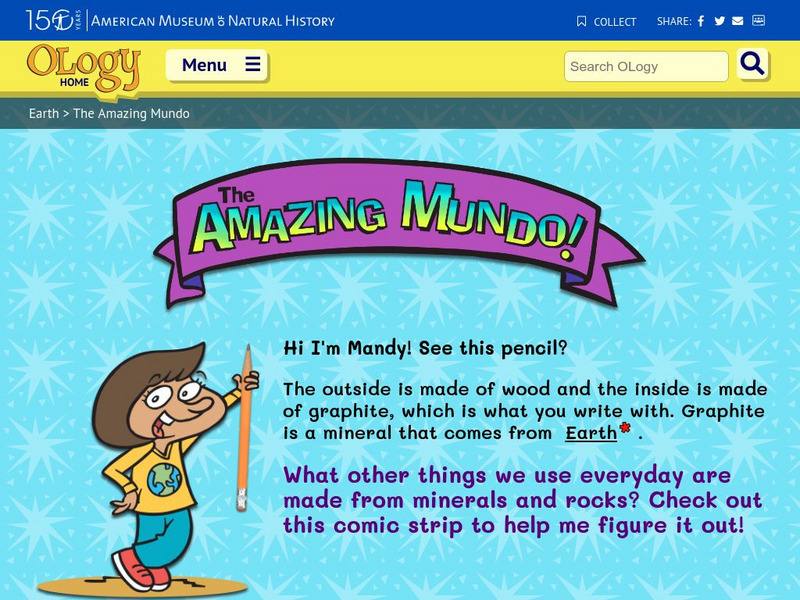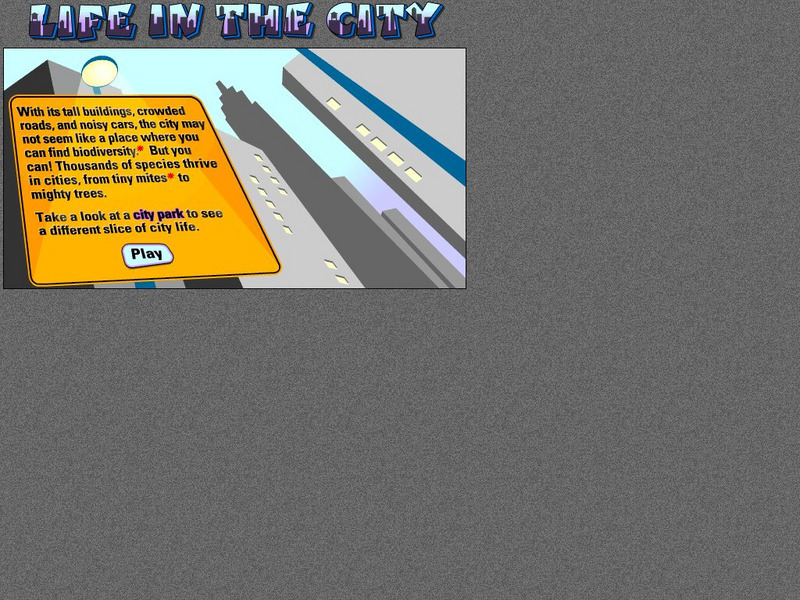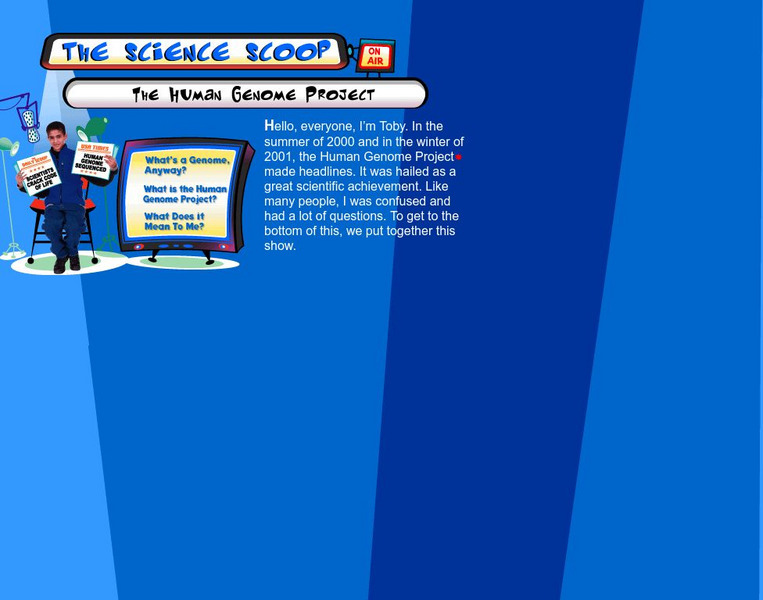American Museum of Natural History
American Museum of Natural History: Universe O Logy Card
OLogy cards are like virtual baseball cards about all kinds of science topics. This one is about the Universe and the astronomers that studied the Universe. See if you can answer a few questions when you're done reading.
American Museum of Natural History
American Museum of Natural History: St. Catherines Island O Logy Card
OLogy cards are like virtual baseball cards about all kinds of science topics. This one is about St. Catherines Island. See if you can answer a few questions when you're done reading.
American Museum of Natural History
American Museum of Natural History: A Nature and Nurture Walk in Mendel Park
Take a walk in the animated "Mendel Park" to discover which traits are genetic and which are a combination of genetics and upbringing.
American Museum of Natural History
American Museum of Natural History: O Logy: The Amazing Mundo
Introduction, in comic strip format, to a selection of minerals and rocks that are used to make everyday objects, such as glass, aluminum foil, coins, and computer chips.
American Museum of Natural History
American Museum of Natural History: Jade O Logy Card
Investigate some facts about jade by reading this interactive Ology card then answering some questions.
American Museum of Natural History
American Museum of Natural History: O Logy: Stuff to Do: Edible Earth
Take a look at the layers that make up our Earth: inner core, outer core, mantle, and crust. Then have fun making a model of the Earth's interior that you can eat up.
American Museum of Natural History
American Museum of Natural History: O Logy: Life in the City
Biodiversity can be found in many places, including city parks. At this OLogy learning game site, players use a magnifying glass to find organisms that live there and also learn something about how each organism relates to others nearby.
American Museum of Natural History
American Museum of Natural History: O Logy: What's the Big Idea? Biodiversity
Find information about diversity among genes, species, and ecosystems that helps answer questions about the importance of biodiversity and how we can save species from extinction.
American Museum of Natural History
American Museum of Natural History: O Logy: What's the Big Idea? Astronomy
An introduction to key concepts about the science of astronomy. With interactive flash cards that open in new windows to help you learn more.
American Museum of Natural History
American Museum of Natural History: O Logy: If Rocks Could Talk: Obsidian
A simple explanation of how obsidian rock is formed.
American Museum of Natural History
American Museum of Natural History: O Logy: If Rocks Could Talk: Granite
A simple explanation of how granite rock is formed.
American Museum of Natural History
American Museum of Natural History: O Logy: If Rocks Could Talk: Limestone
A simple explanation of how limestone rock is formed.
American Museum of Natural History
American Museum of Natural History: O Logy: If Rocks Could Talk: Sandstone
A simple explanation of how sandstone rock is formed.
American Museum of Natural History
American Museum of Natural History: Ology: Moving Mammals
Students explore the different ways mammals move by observing them walk, hop, gallop, swim and swing in animations. Facts about habitat and structure are also included in these animations.
American Museum of Natural History
American Museum of Natural History: Ology: Cosmic Cookies
Roll your mouse over the planets in our solar system to read a vignette about each. Then, link to the recipe for directions to create miniature planet cookies that look like the real thing.
American Museum of Natural History
American Museum of Natural History: Ology: Milky Way Galaxy
How big is a billion? Find out some interesting facts about our galaxy, the Milky Way, and its billion stars.
American Museum of Natural History
American Museum of Natural History: O Logy: How Did the Universe Begin?
Bite-size introduction to two scientists-Hubble and Lemaitre-who played key roles in formulating the theory of the origin of the universe known as the big bang. Includes an interactive timeline on which you can plot out the approximate...
American Museum of Natural History
American Museum of Natural History: O Logy: Stuff to Do: Moon Watch Flip Book
Hands-on activity shows you how to make a flip book of the moon using close observation skills and simple materials. Includes animation that lets you view the moon in action through its different phases, worksheets, and illustrated...
American Museum of Natural History
American Museum of Natural History: O Logy: Light, Matter, Energy
Learn how Einstein revolutionized how we think about light, matter, and energy by asking challenging questions and questioning old ideas.
American Museum of Natural History
American Museum of Natural History: O Logy: Stuff to Do: Light Quest
Light Quest activity, for two to four players, designed to explain how atoms create light and where photons come from.
American Museum of Natural History
American Museum of Natural History: O Logy: Human Genome Project
Get the science scoop on the Human Genome Project by considering the answers to these three questions: What is a genome? What is the Human Genome Project? What does it mean to me?
American Museum of Natural History
American Museum of Natural History: O Logy: Stuff to Do: Dna in a Blender
Follow these illustrated instructions to conduct a simple experiment in separating DNA from an onion!
American Museum of Natural History
American Museum of Natural History: Ology: Astronomy: In Pictures: Beyond Planet Earth
What would it be like to travel across the solar system and explore space? Take a look at some of the places that humans might go to someday, and the questions that scientists are asking.
American Museum of Natural History
American Museum of Natural History: Ology: Brain: Boost Your Brain Power!
Test how good and how quick your visual memory is in these games of recall.















